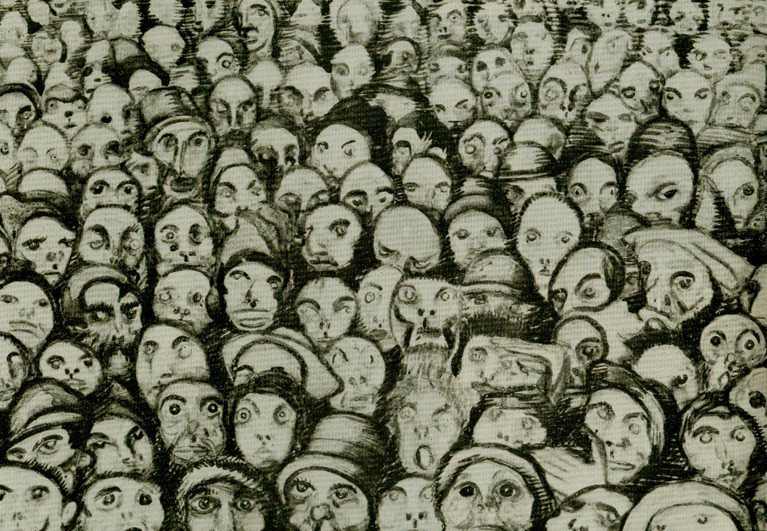
Daniel Dennett was here in Montreal the other day, and we went to his lecture at UQaM. The title was "From Animal to Human: How Culture Makes Up Our Minds," and I have to say that I correctly predicted the thesis before attending: We human beings are so special!
On the way to that rather predictable thesis, however, he said a number of very interesting things, mostly in the form of anecdotes and examples passed on from all manner of scientific research. My favorite: according to Paul MacCready's calculations, human beings and their domesticated animals made up 0.1% of the terrestrial biomass 10,000 years ago, at the origin of settled agriculture. Today, we and our companions (mostly our cattle) make up 98% of the terrestrial biomass. That's a lot of domestication!
He also had several very good lines. My favorite: "Not a one of us thinks maximizing our progeny is the summum bonum of our lives."
Nonetheless, the most interesting parts of his talk, for me, were the parts that were unintentionally interesting: toss-away lines or formulations that were extremely revealing, even though this revelation was not at all thematized by Dennett himself. Here I have several examples.
- Discussing viruses, he said "they have a shape, and hence they have a function." Aristotle lives!
- He repeatedly cast both biological and cultural evolution as a process of exchange, saying at one point that differential replication was the currency with which evolutionary adaptations ("research and development") were paid for. Differential replication is the common denominator of all historical processes.
- "Our power depends on the culture that allows us to divide labor and share expertise," he said at one point. He seems to put a great stock in techniques and expertises, which he basically equated with understanding.
Finally, I think this tension brings us back to Dennett's thesis. Dennett represents a discourse that wants to scientifically explain culture as the transmission of memes, "data structures that act virally," in his own, very nice, phrase. His argument rests on developing a narrative about the proliferation of such viral data structures, a narrative in which human subjectivity is, necessarily, absent. And yet, Dennett ended his talk by claiming that "we alone represent our reasons," and "that's what makes us responsible." He reverts to precisely that theological and humanist discourse that is most at odds with his own project.
What would it take for memeticists to turn their analysis back on themselves? What is the structure of the discourse of representation, reason, and responsibility such that it acts virally upon us? Is it a case of something we don't have to understand in order to remember and pass on? What about the memetic discourse itself? Can they give a scientific account of their own science? If such a leap could be made, memetics might prove itself to be the science of ideology that Althusser tried so hard to inaugurate.
It seems to me (and I admit, I have not done any reading in this area in several years) that memetics does not yet have an operative concept of "structure" by which it can begin to analyze memes in their specificity. I think there really is room for fruitful research here, and it might be research that would allow Marxism to make a contribution to the science of genetics to make up for Lysenko.









